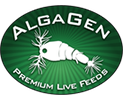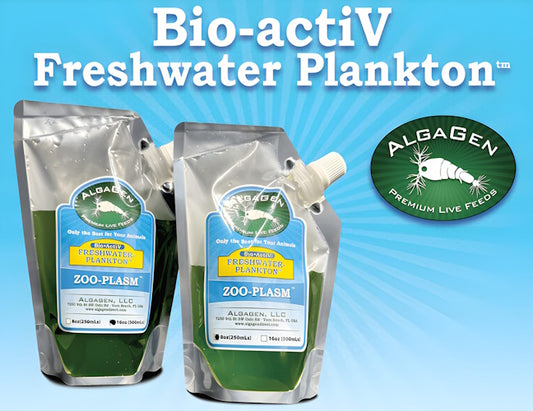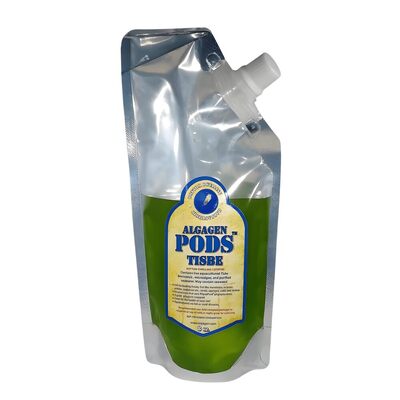Carbohydrates, often overshadowed by the more prominent roles of proteins and fats in marine fish nutrition, play a crucial yet understated role in the health and energy management of marine fish. Understanding carbohydrate utilization in marine fish is essential for aquarists and marine biologists who strive to optimize fish health and growth within aquatic ecosystems. This article delves into how marine fish metabolize carbohydrates and the implications of carbohydrate intake for their overall well-being.
The Basics of Carbohydrate Utilization in Marine Fish
Carbohydrate utilization in marine fish refers to how these organisms convert carbohydrates into usable energy. Unlike terrestrial animals, marine fish typically cannot digest and utilize carbohydrates effectively. Their natural diets usually consist of low carbohydrate levels, primarily sourced from algae or other marine plants consumed by their prey. Copepods eat phytoplankton and transfer nutrition from the phytoplankton through predation, being preyed upon.
Biological Role of Carbohydrates
In marine environments, carbohydrates serve primarily as an energy source. They are less critical for structural functions, predominantly fulfilled by proteins and minerals. For marine fish, efficient carbohydrate utilization is crucial for sparing proteins for growth and repair rather than energy production, thereby enhancing the nutritional efficiency of their diets.
Digestive Adaptations
Marine fish have evolved digestive systems that reflect their natural dietary intake, typically low in carbohydrates. The enzymes required to break down carbohydrates are less prevalent in marine fish compared to those in terrestrial animals. This adaptation means that marine fish often exhibit lower efficiency in converting carbohydrates into energy, which can lead to increased fat deposition if their diet is disproportionately high in carbohydrates.
Impacts of Carbohydrate Levels on Diets
The dietary inclusion of carbohydrates must be managed carefully to avoid health complications. Excessive carbohydrates can lead to abnormal fat deposits within the liver, a condition known as hepatic lipidosis, which can be detrimental to fish health.
Optimal Carbohydrate Sources
The source of carbohydrates also influences their utilization. The carbohydrates in marine fish diets often come from easily digestible sources like dextrin, maltodextrins, and certain fibers for optimal health. These forms help to ensure that carbohydrates are more readily available for energy production, minimizing the risk of health issues associated with poor carbohydrate metabolism.
Carbohydrate Utilization in Different Species
It's also important to note that carbohydrate utilization varies significantly among marine fish species. Herbivorous fish, for instance, tend to have a higher capacity to utilize carbohydrates effectively compared to carnivorous species, whose natural diet consists primarily of proteins and fats. Understanding each species' specific dietary needs and natural feeding habits is crucial for formulating appropriate diets that support their health and energy requirements.
Carbohydrate Utilization and Disease Resistance
Recent studies have suggested a link between carbohydrate utilization and immune function in fish. Adequate and appropriate carbohydrate intake can support the immune system by providing the energy needed for immune cells to function effectively. However, an imbalance, either too high or too low, can compromise immune responses, making fish more susceptible to diseases.
Practical Applications in Aquaculture
In aquaculture settings, understanding carbohydrate utilization in marine fish is applied to improve feed formulations. Aquafeeds tailored to different species' specific carbohydrate tolerance and utilization abilities can significantly enhance growth rates, feed efficiency, and overall fish health. Researchers and feed developers work to create balanced feeds that provide sufficient energy while avoiding the pitfalls of excessive carbohydrate inclusion.
Strategies for Optimizing Carbohydrate Use in Diets
1. Species-Specific Formulations: Developing and using feeds that respect specific fish species' natural dietary patterns and carbohydrate utilization capabilities.
2. Carbohydrate Quality: Select high-quality, easily digestible carbohydrate sources that match the digestive capabilities of fish to prevent liver issues and other metabolic disorders.
3. Monitoring and Adjustments: Regularly assessing fish health and growth performance to adjust dietary carbohydrate levels to meet their changing nutritional requirements.
Conclusion
Carbohydrate utilization in marine fish is a complex but critical aspect of their nutrition. While not as directly beneficial in large quantities as they are for terrestrial animals, understanding and managing carbohydrates in the diets of marine fish is essential for promoting optimal health and efficient energy use. As research advances, the aquaculture industry continues to refine dietary formulations to better suit the metabolic needs of marine fish, ensuring their health, growth, and sustainability in aquatic farming practices.
0 Comments





Recent post